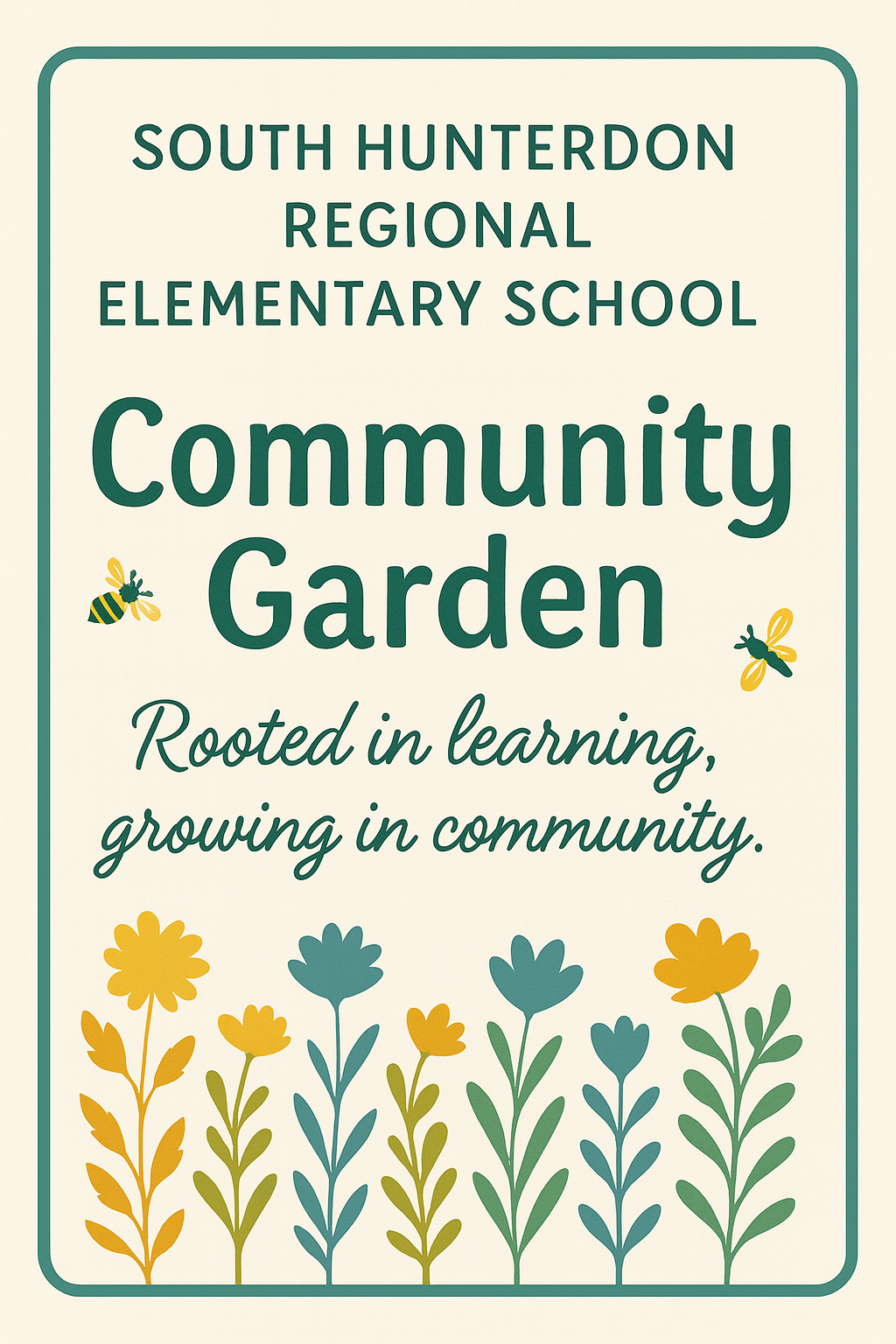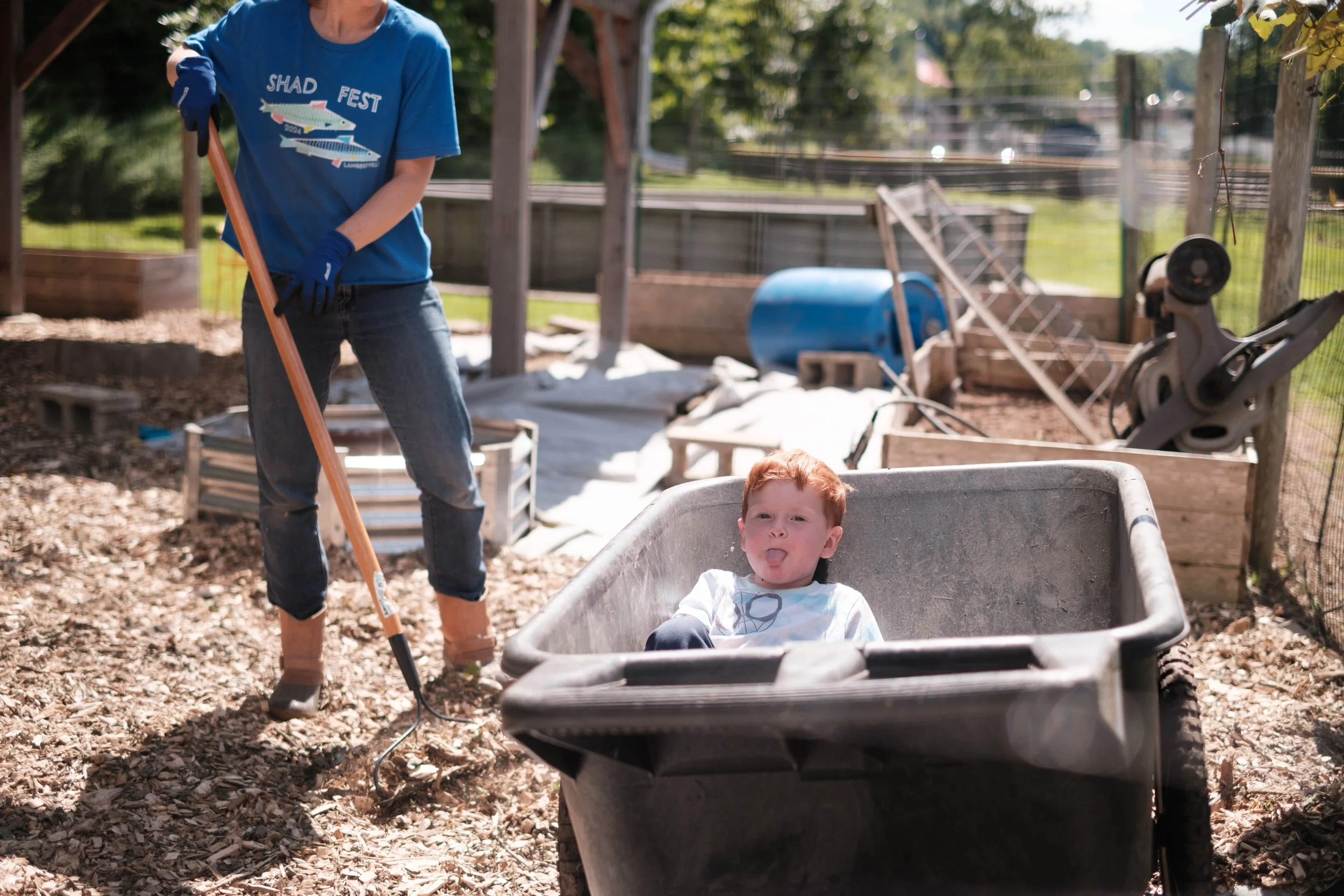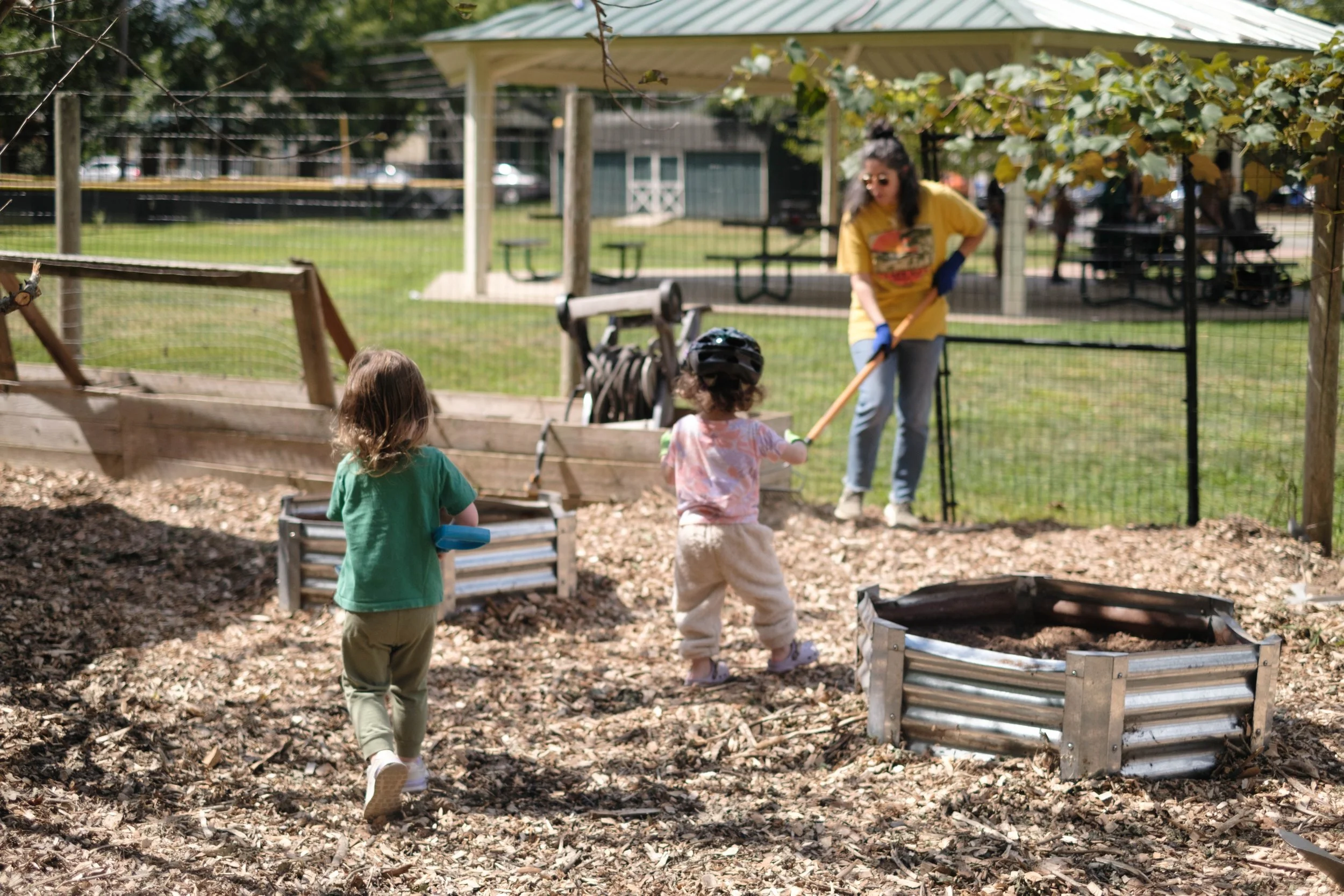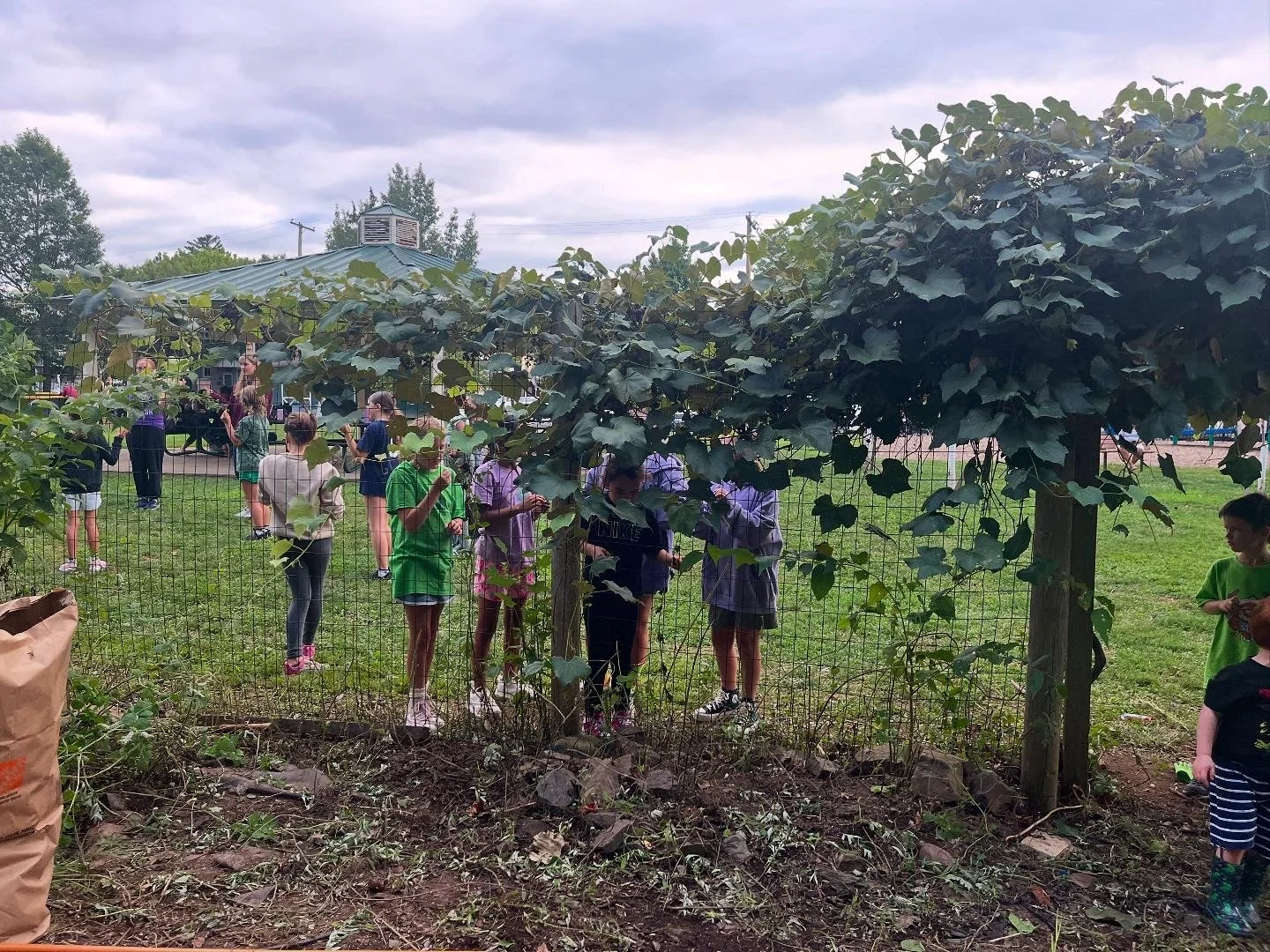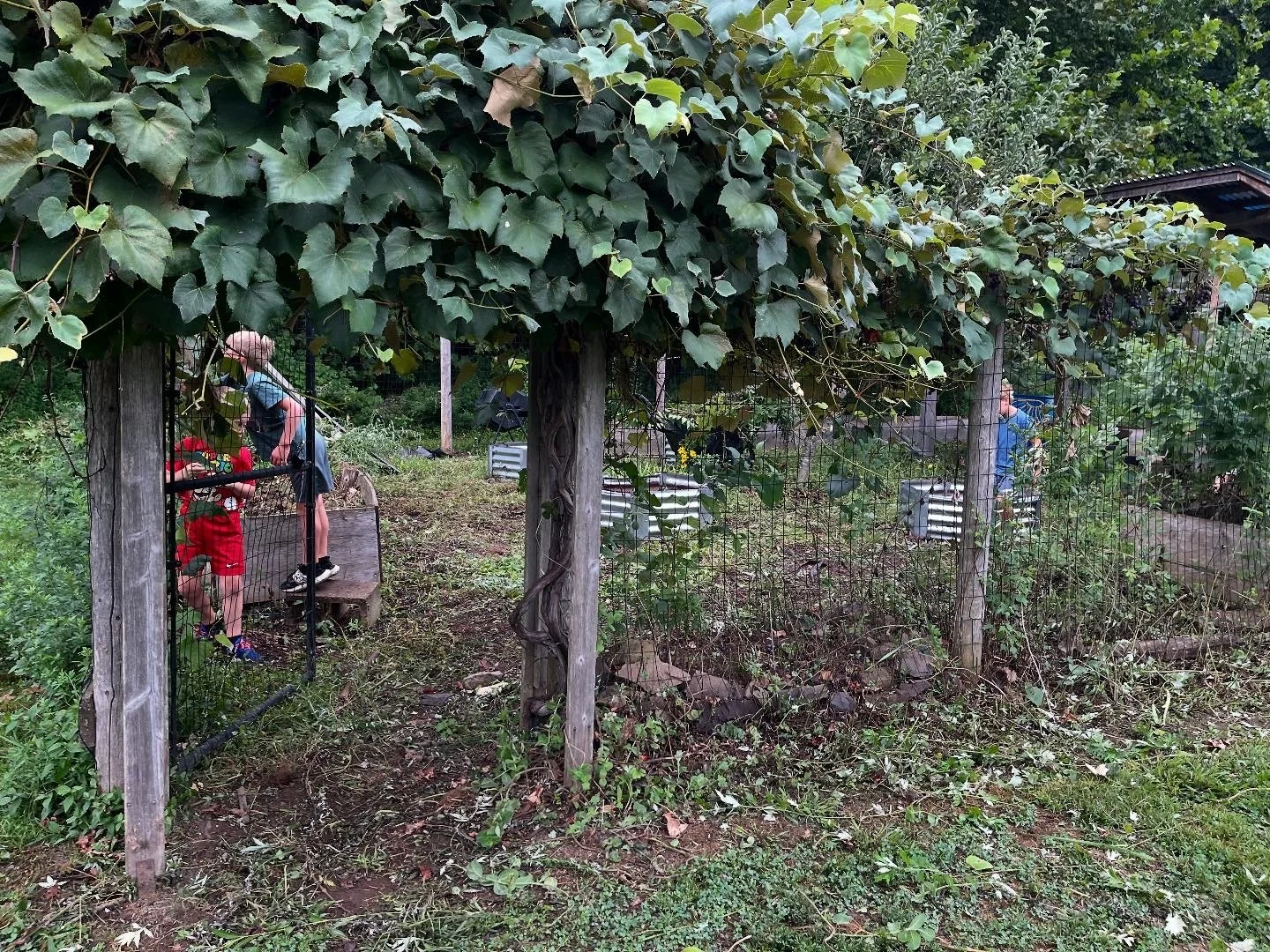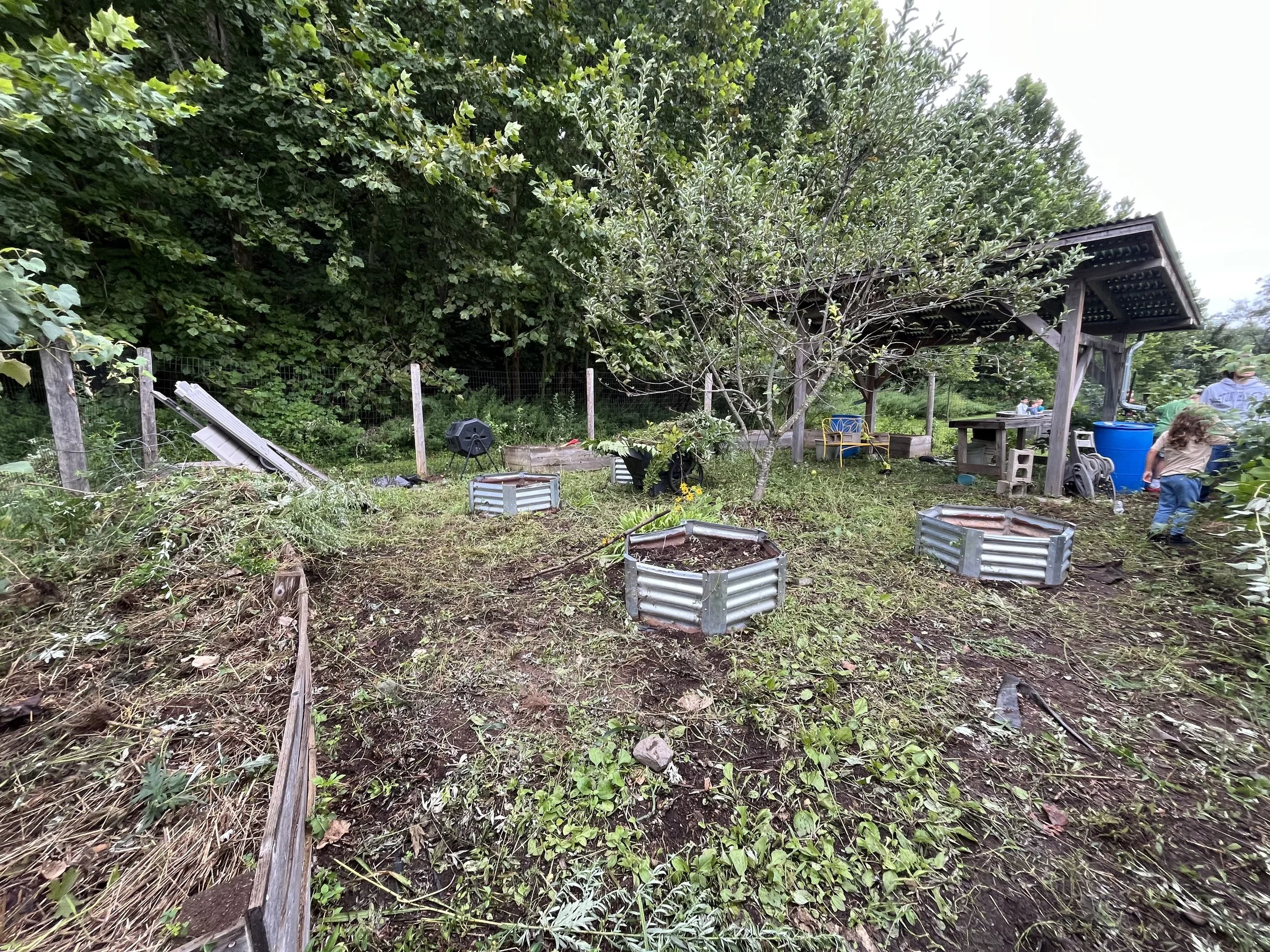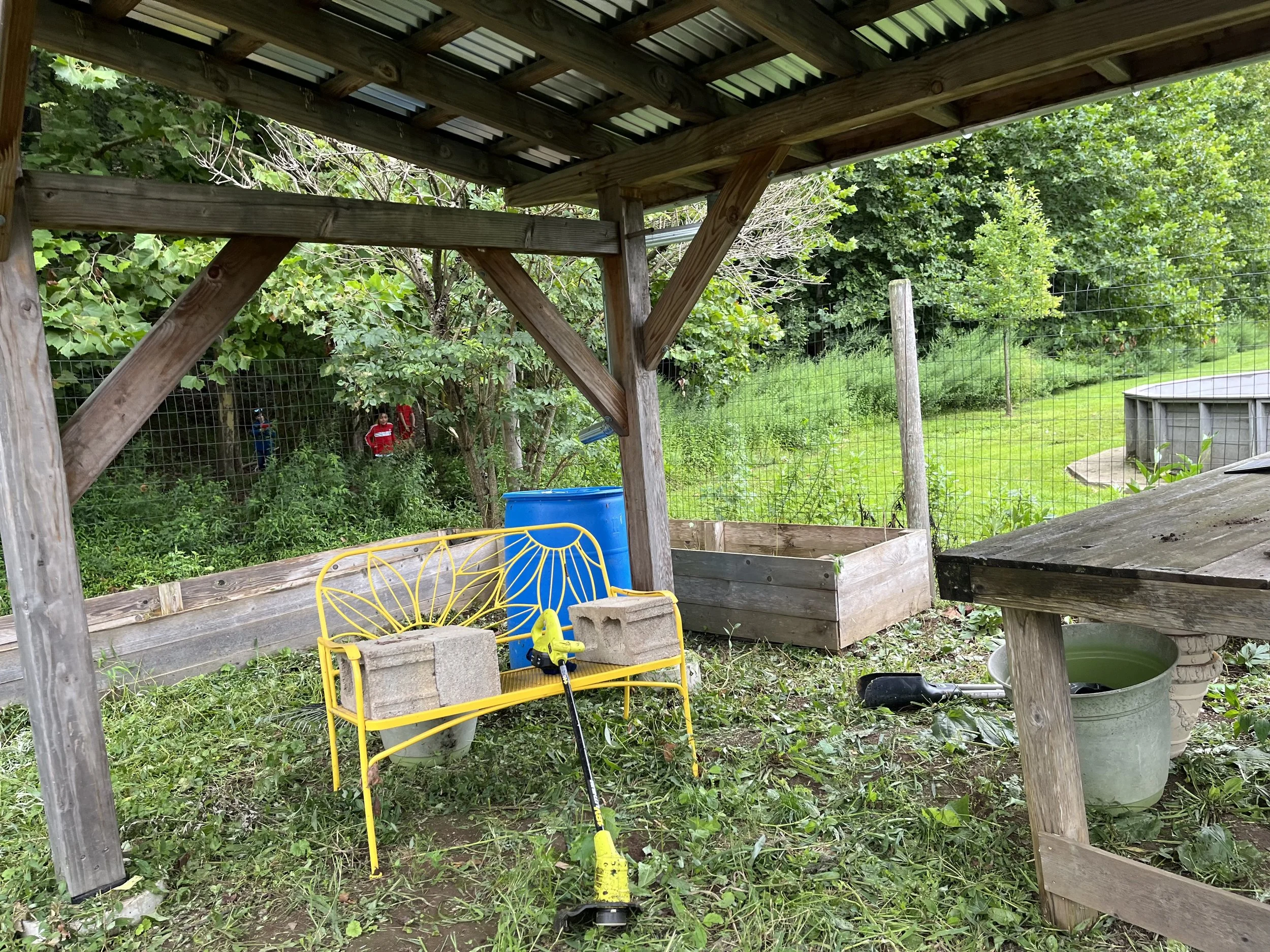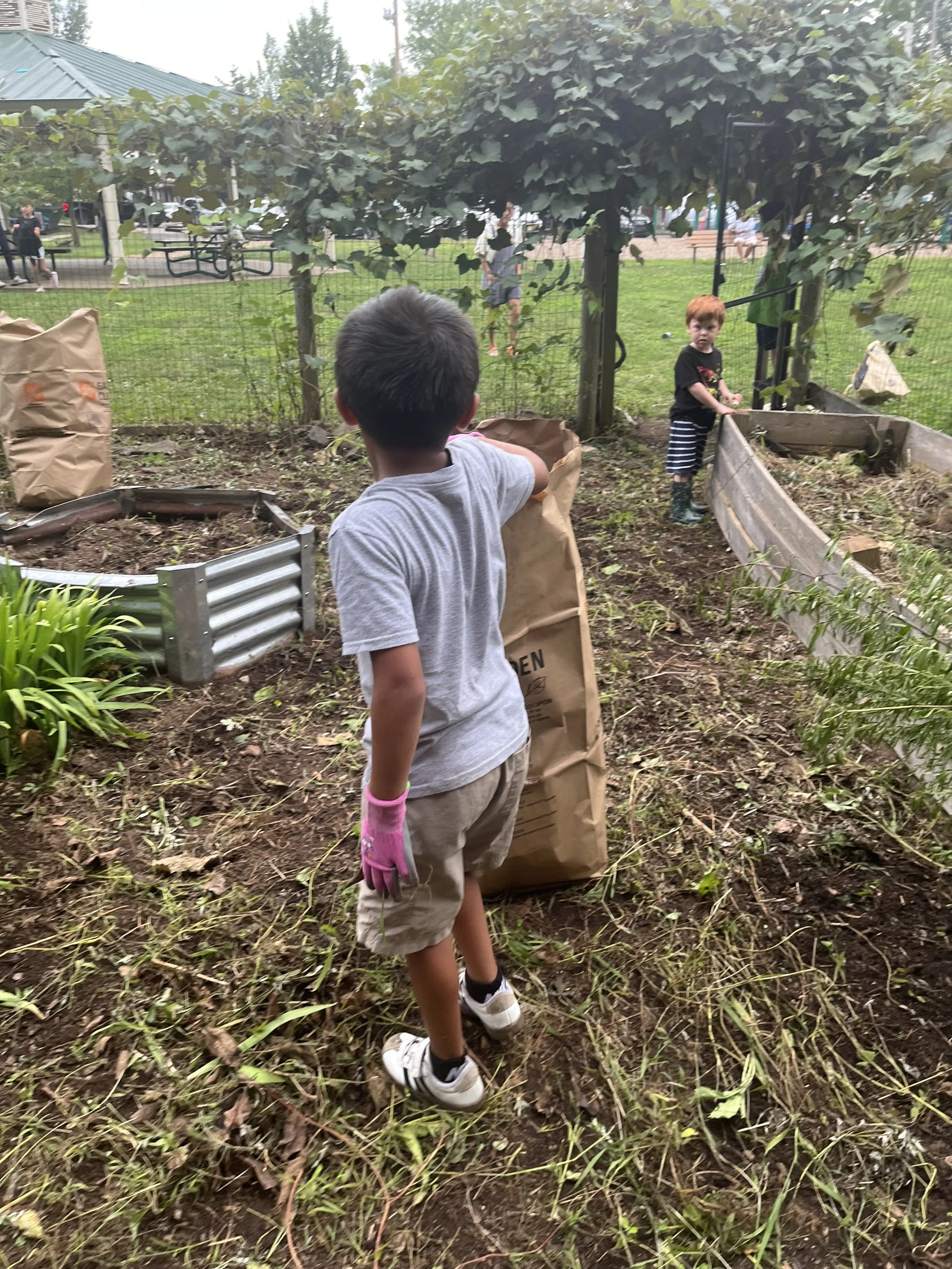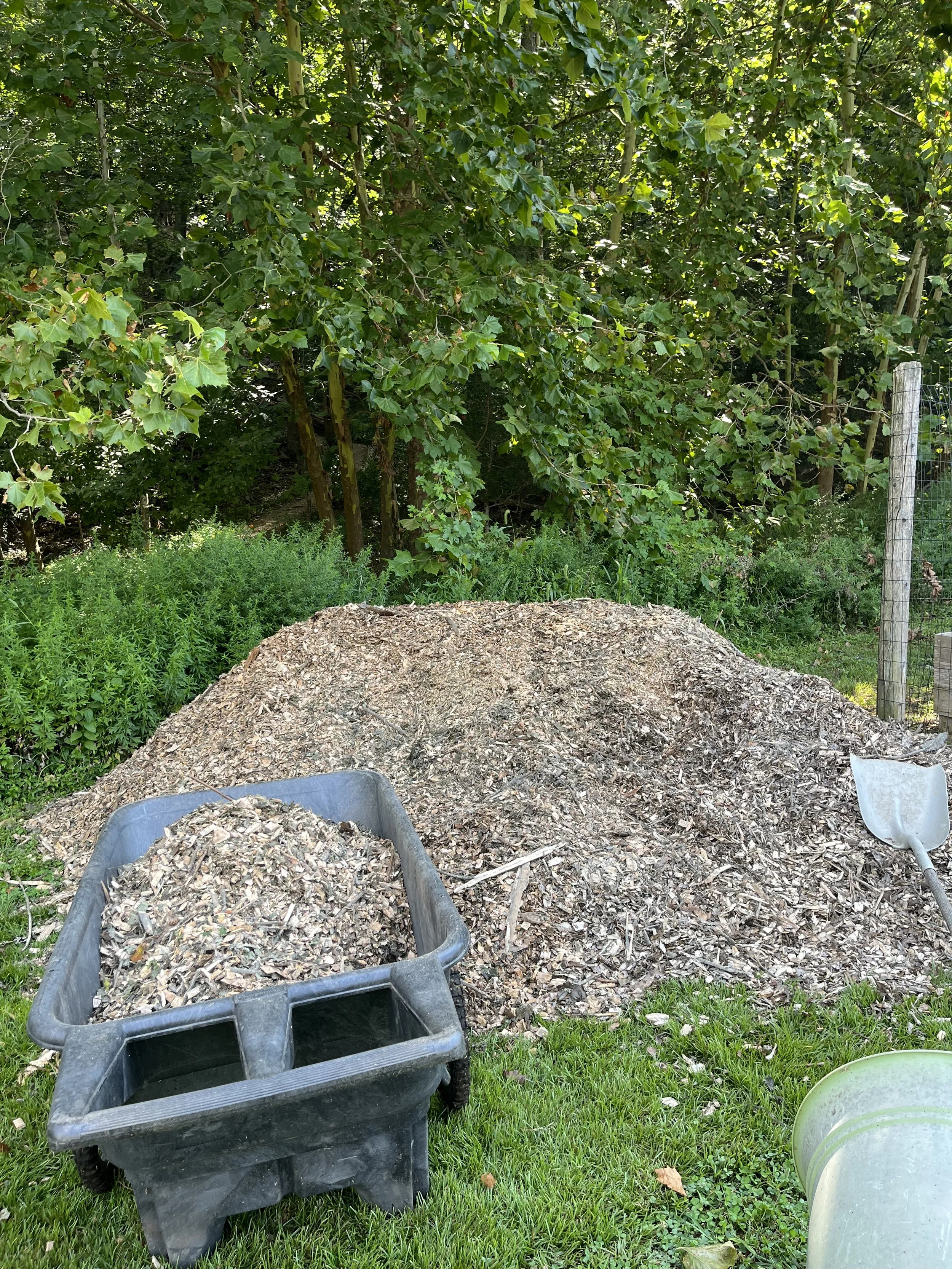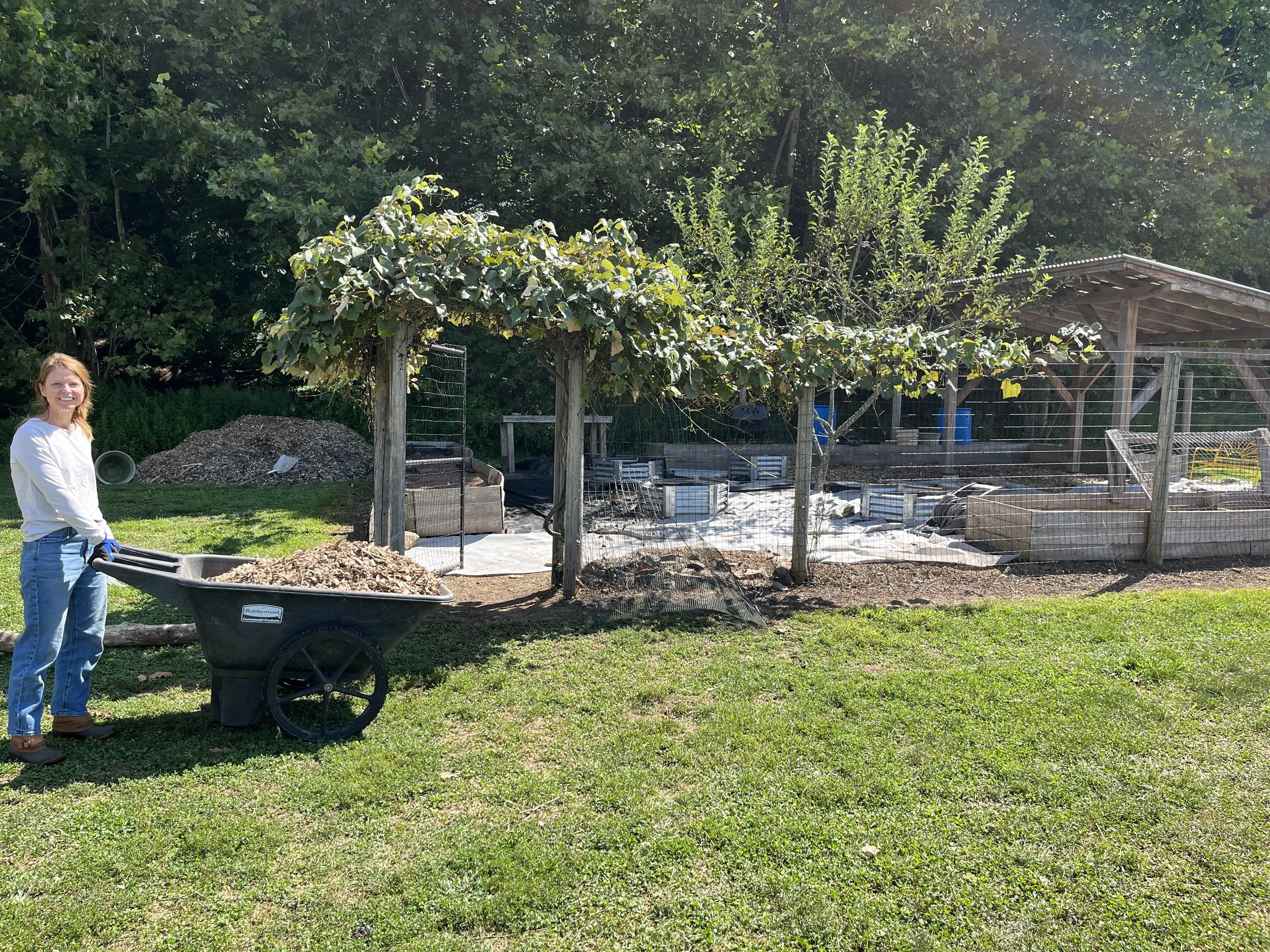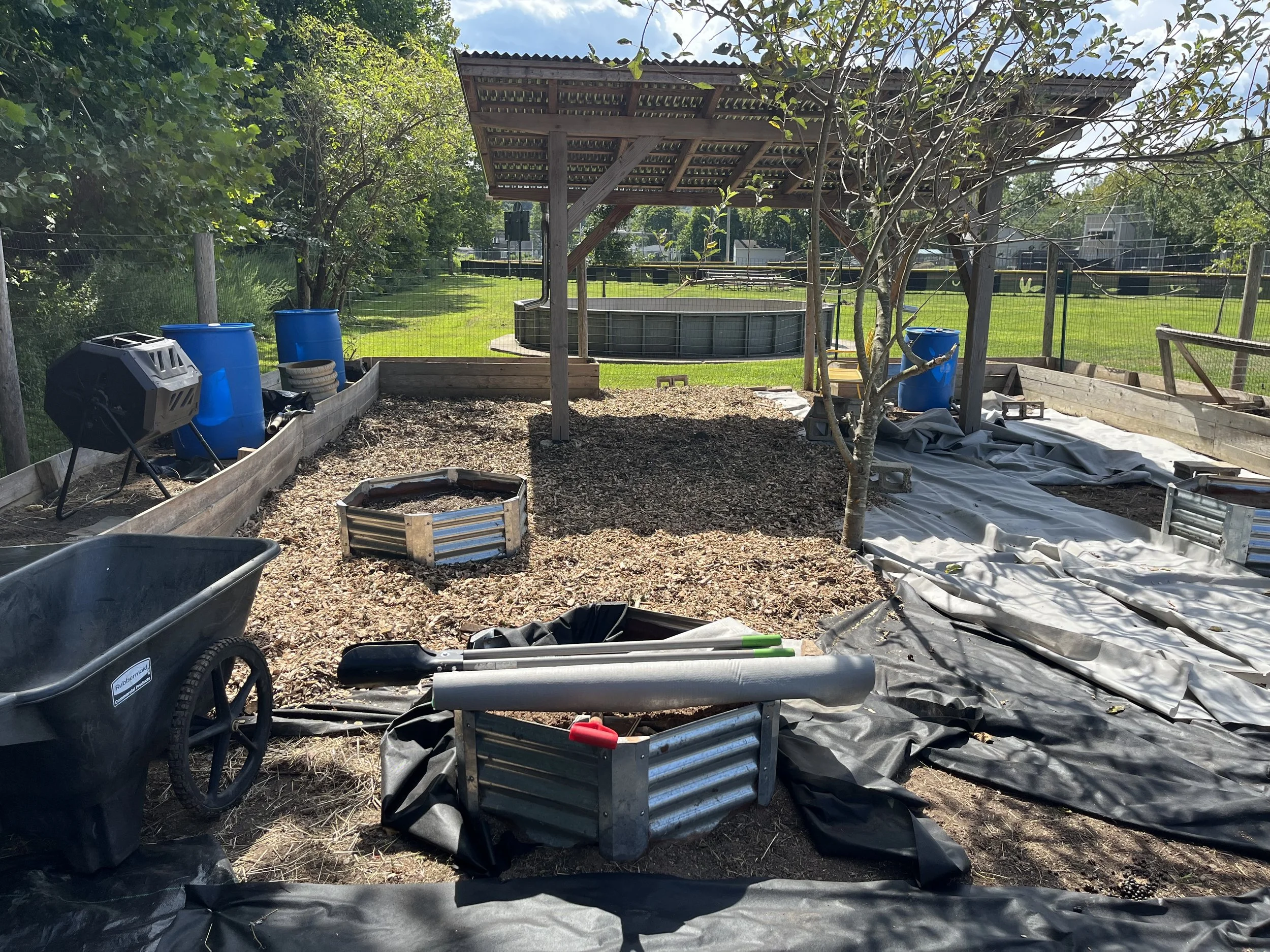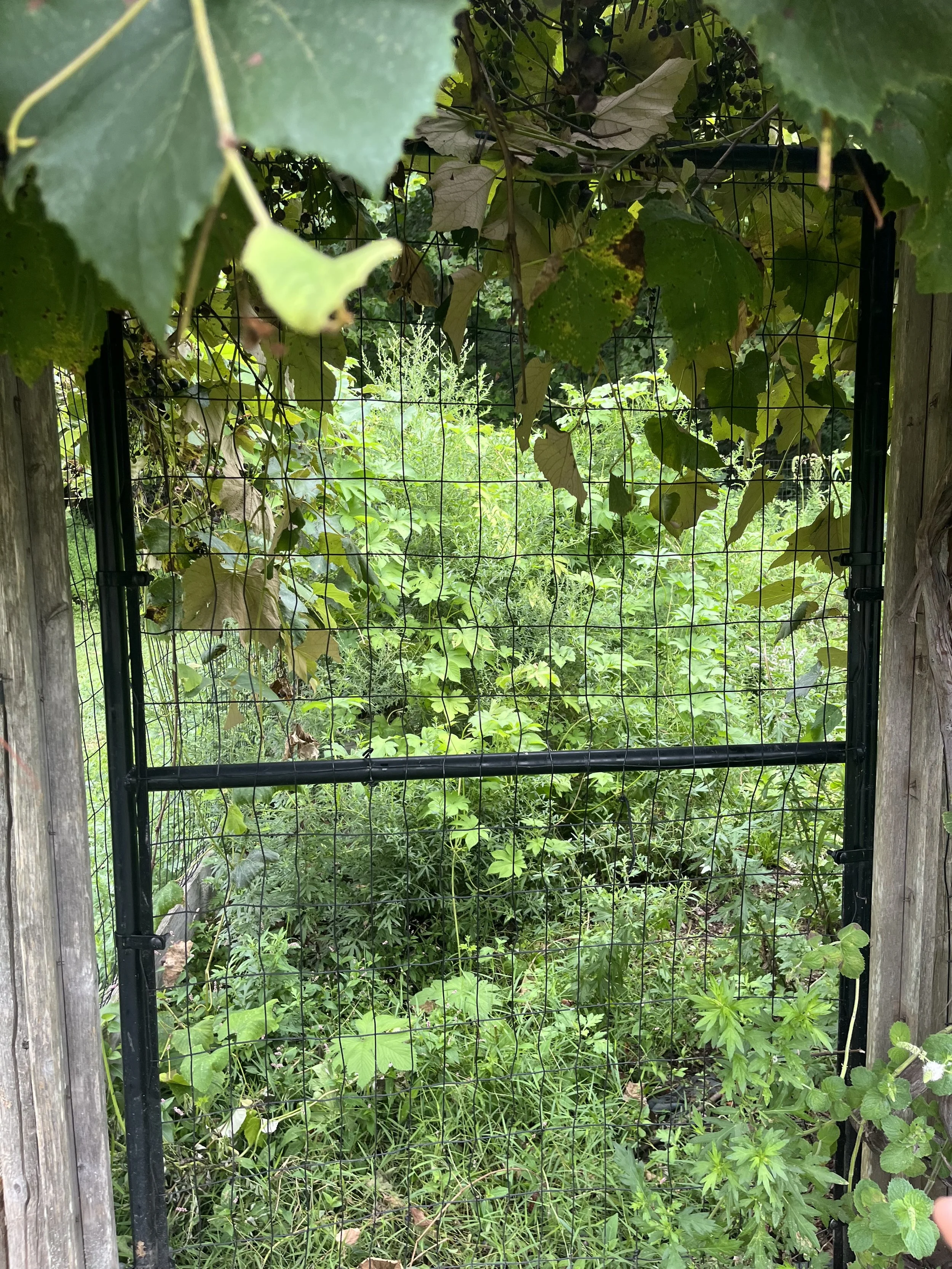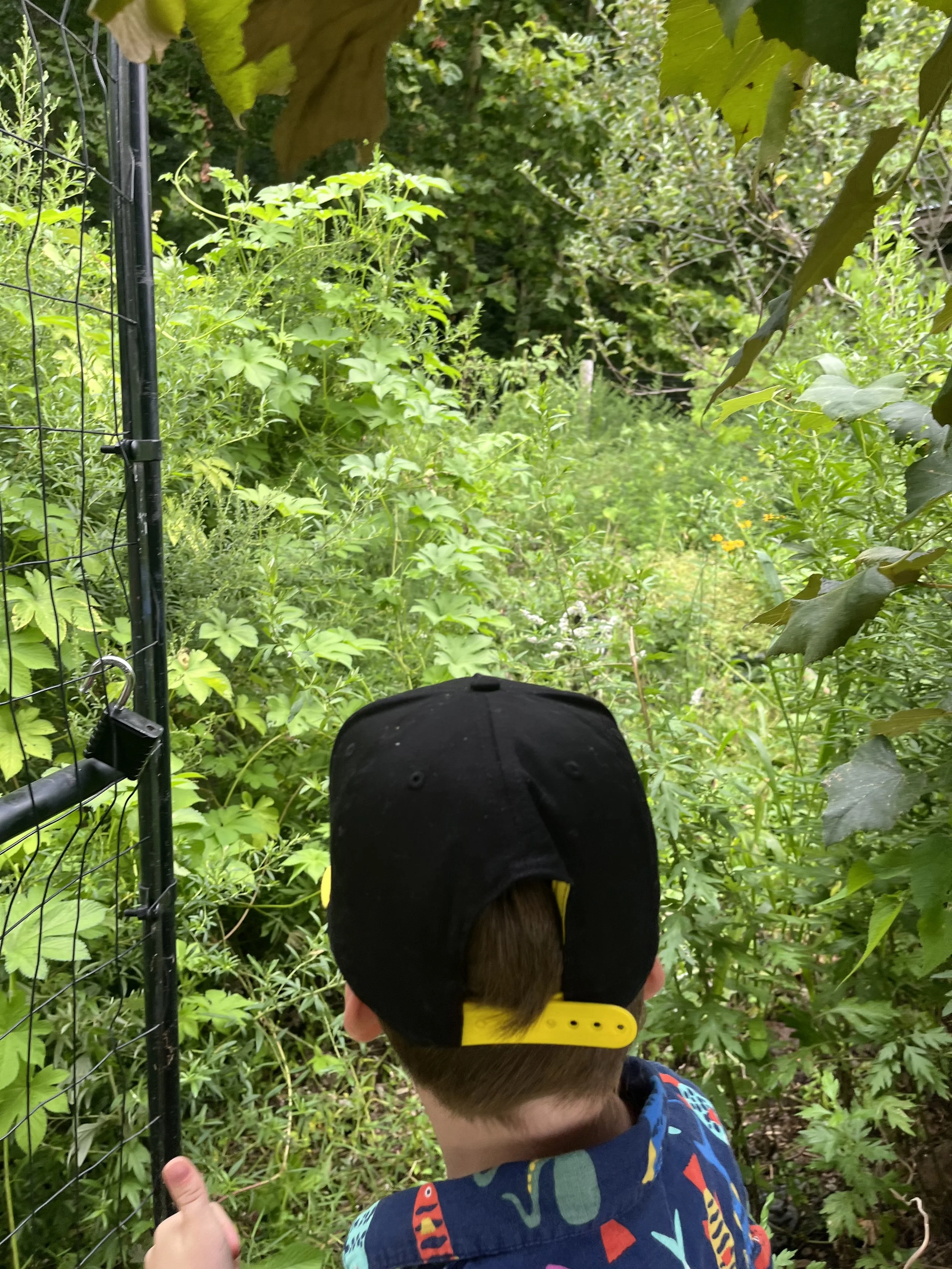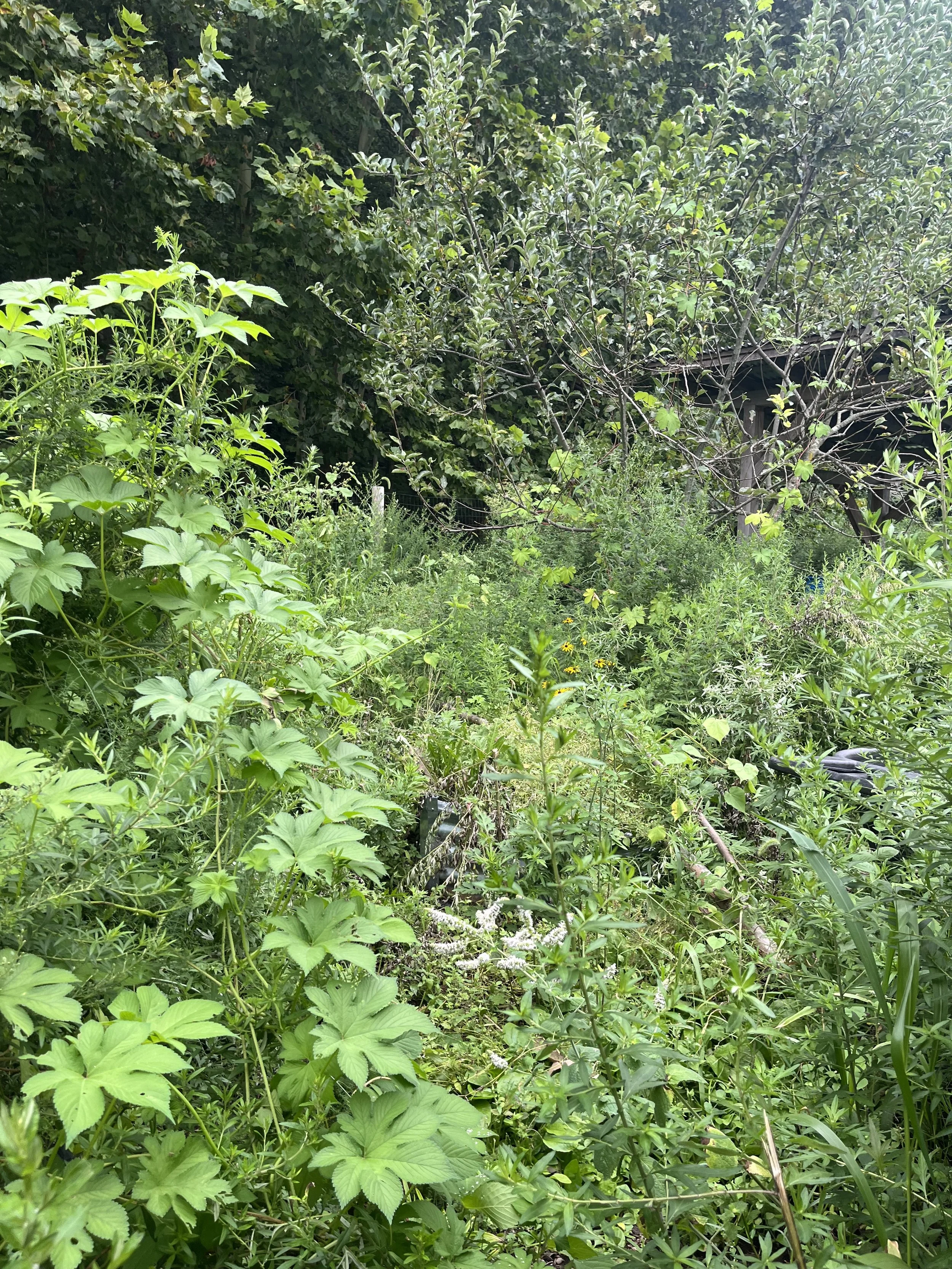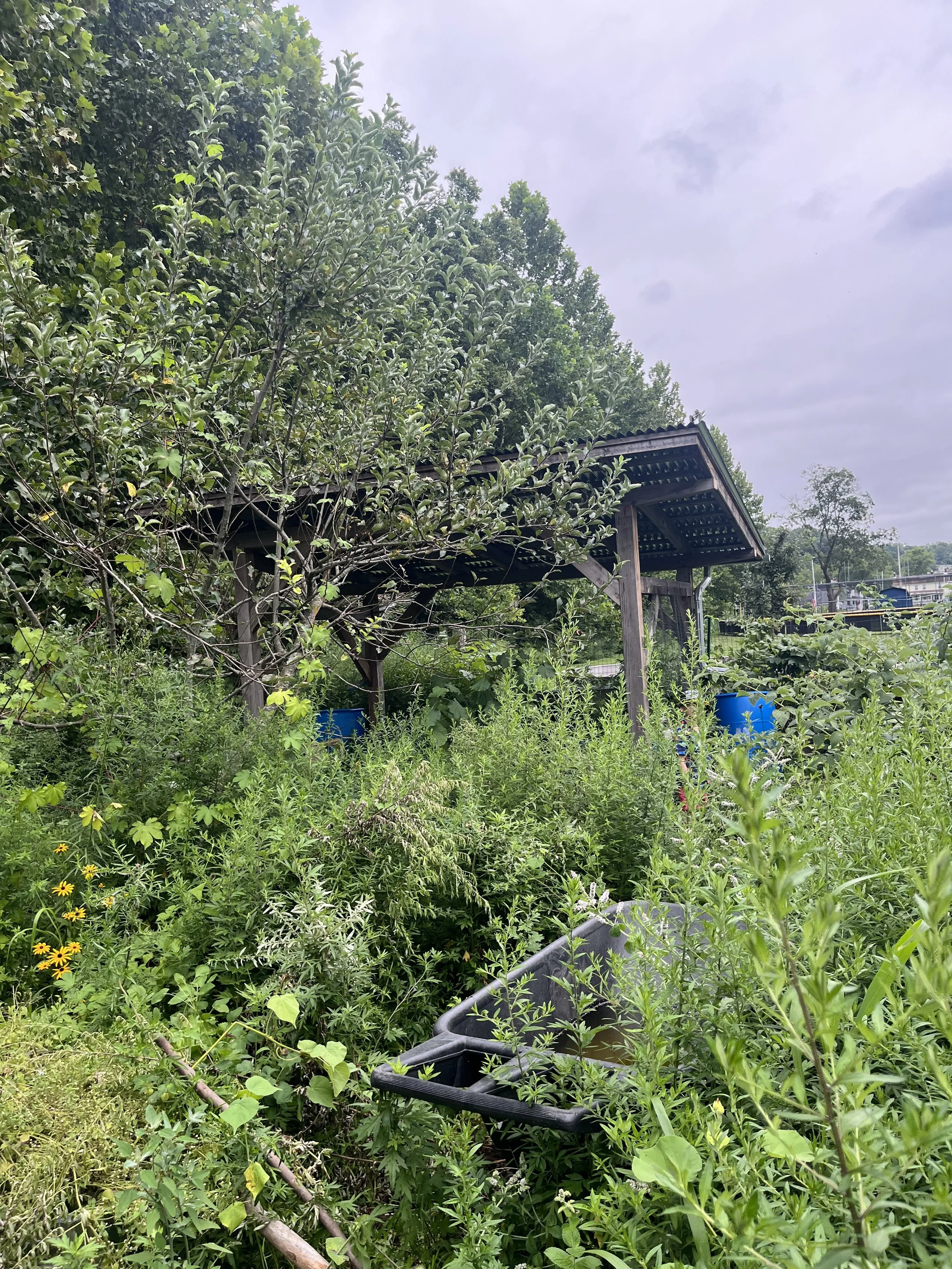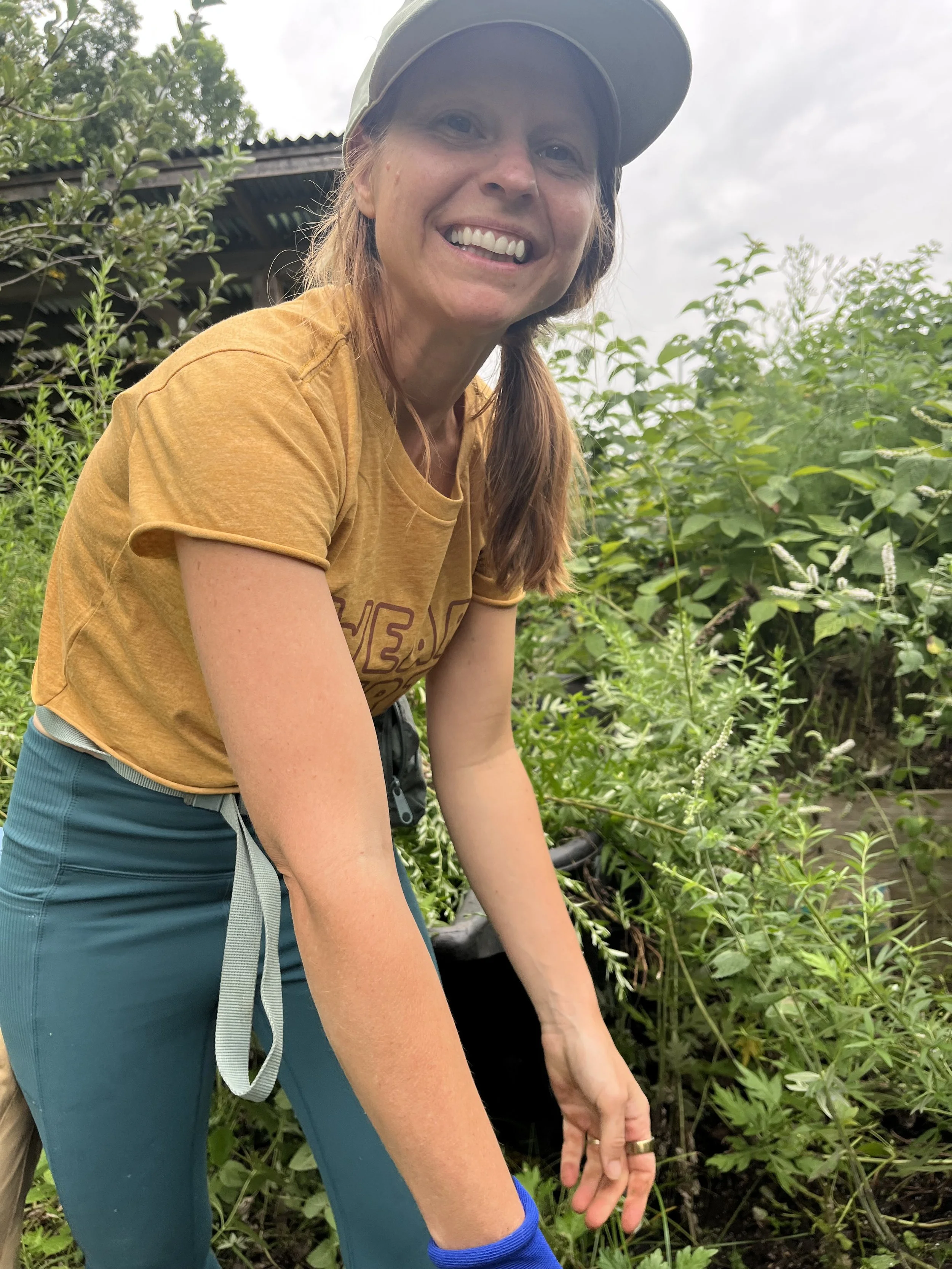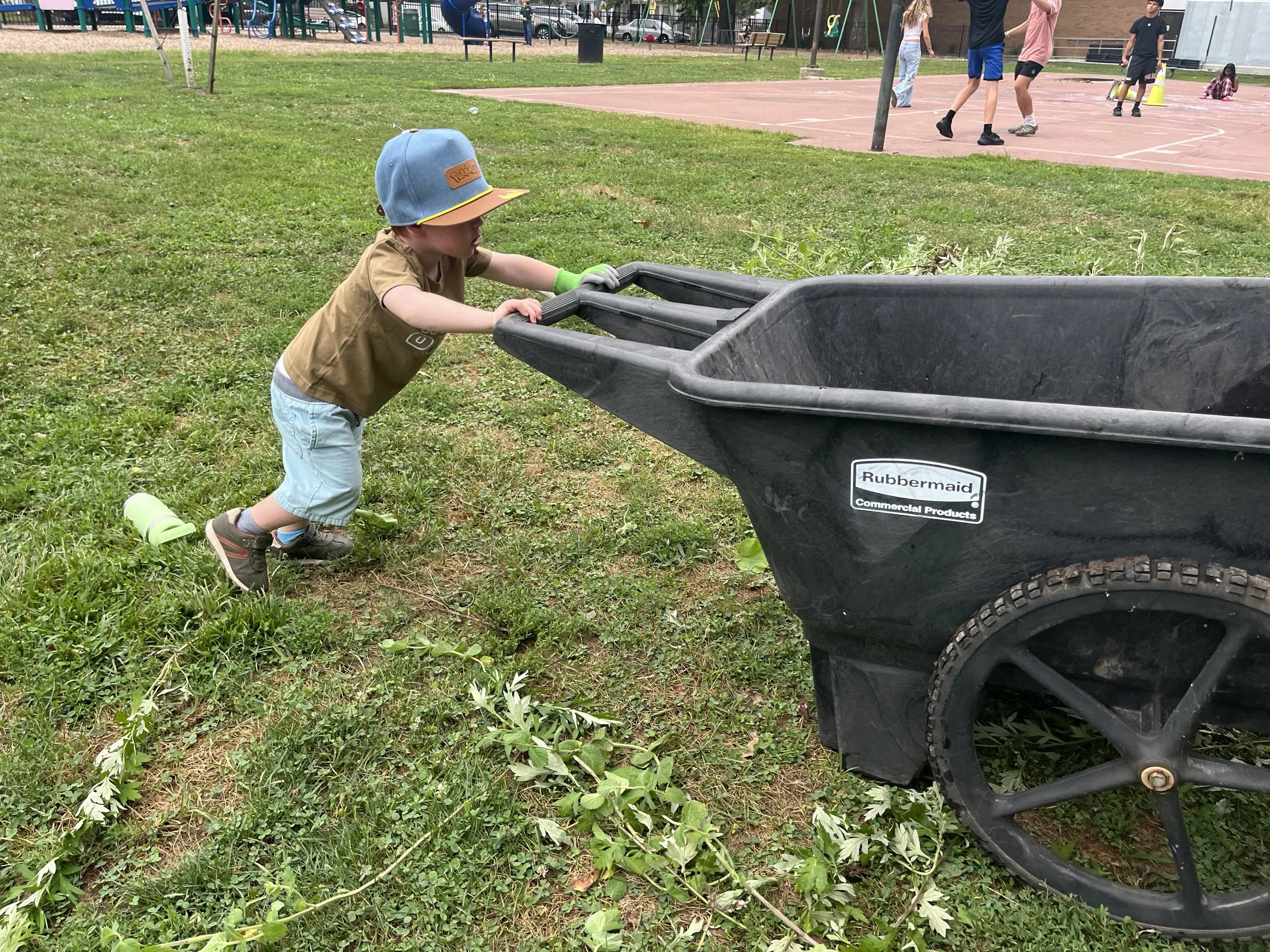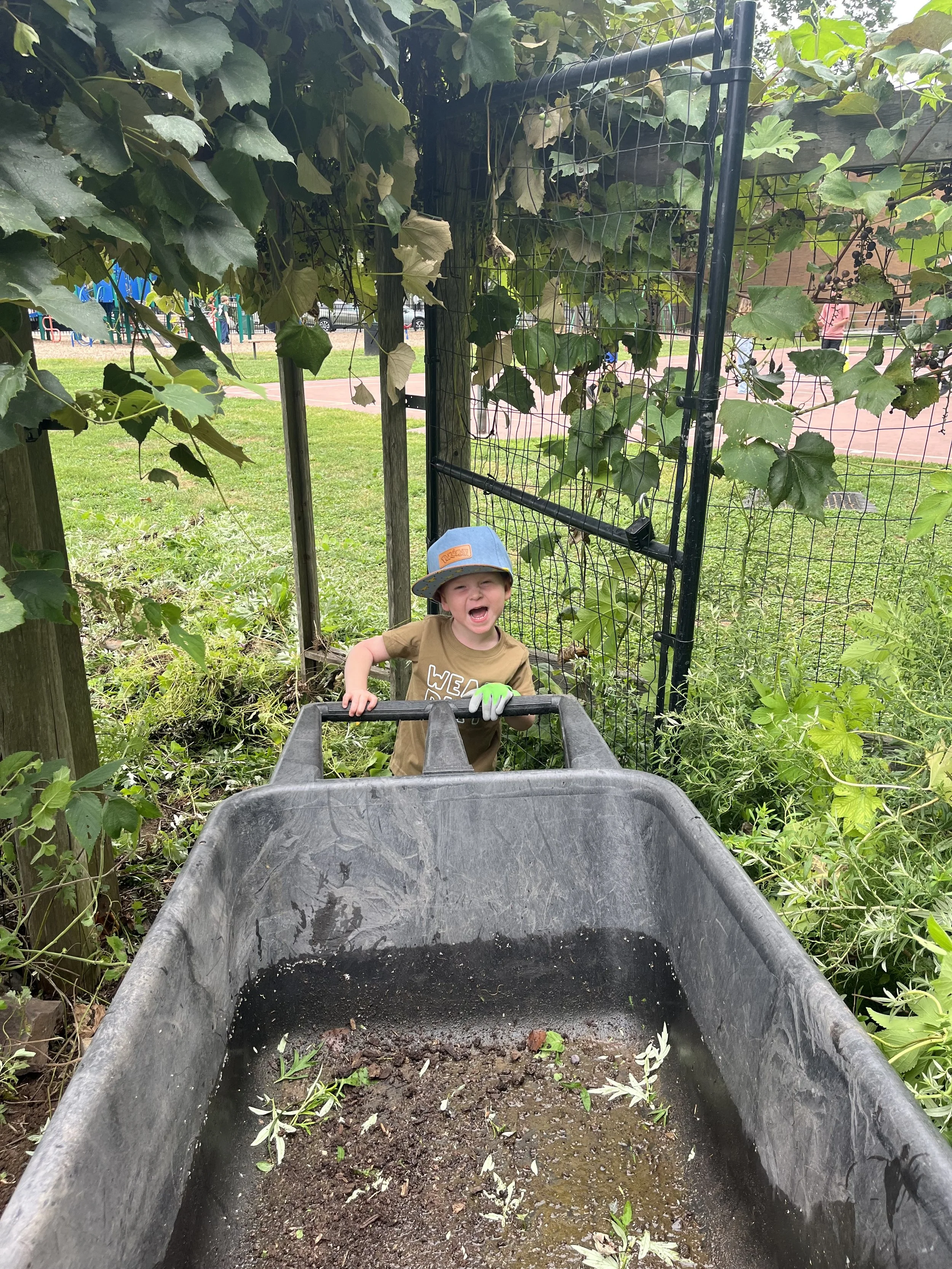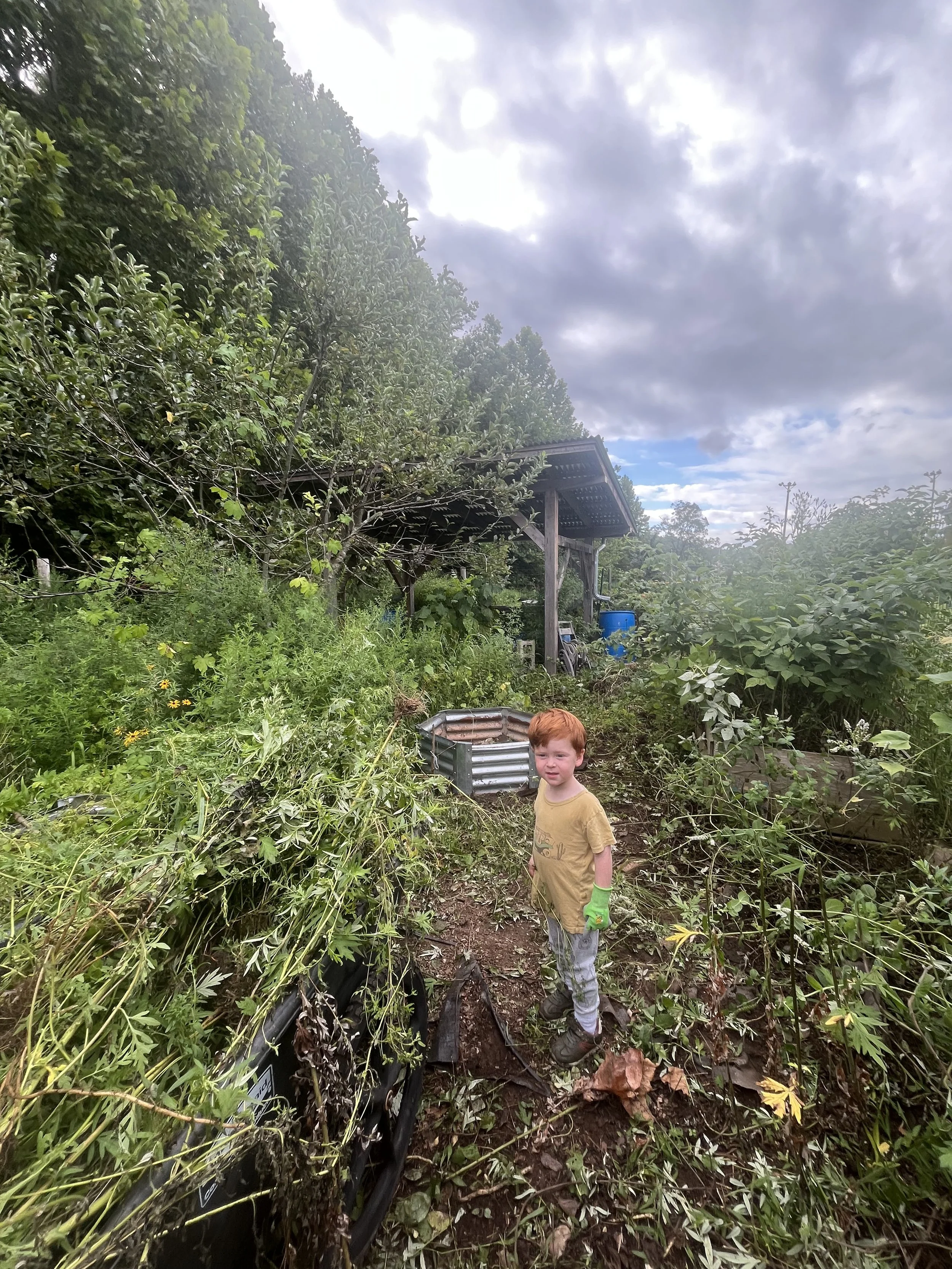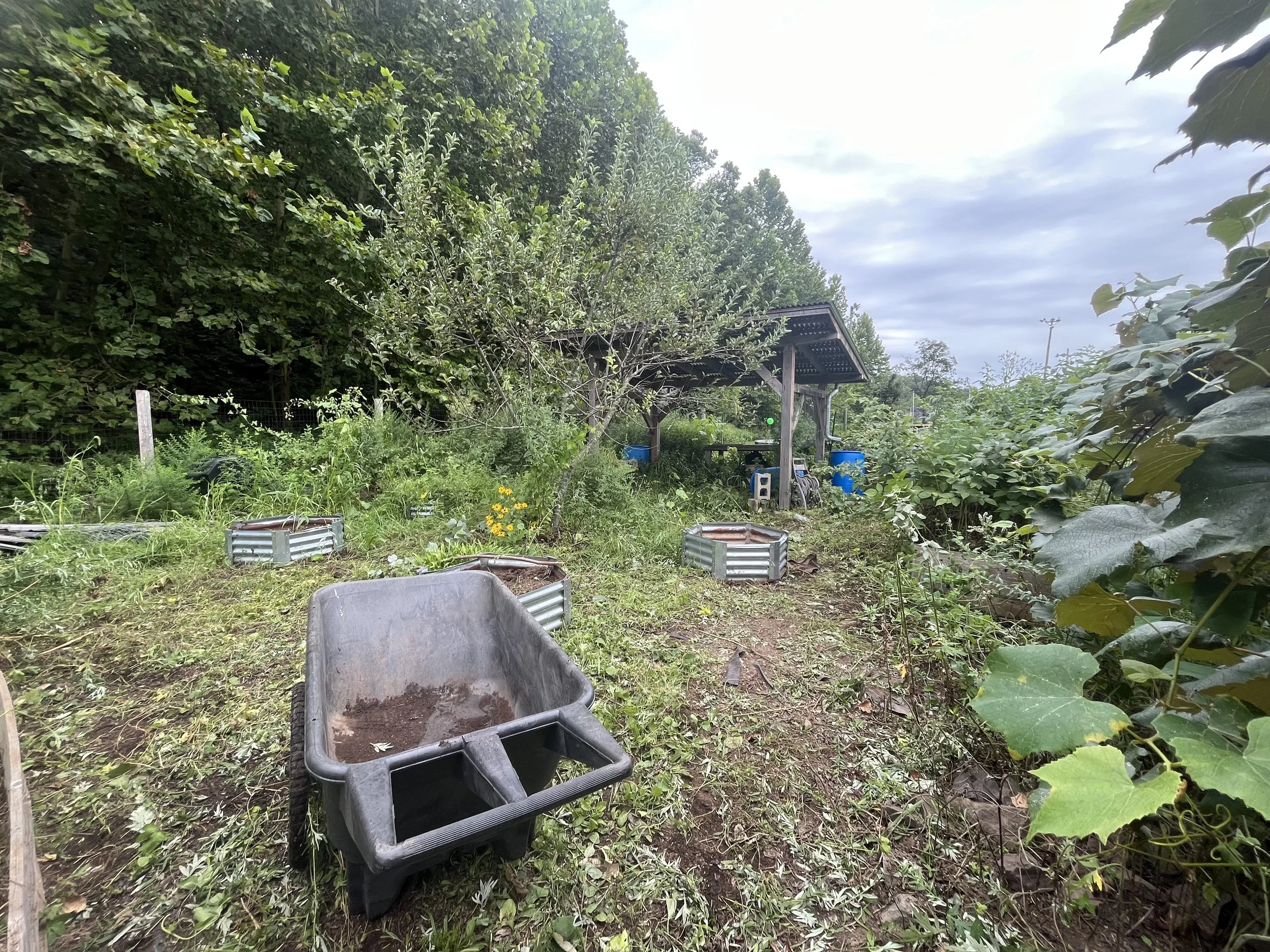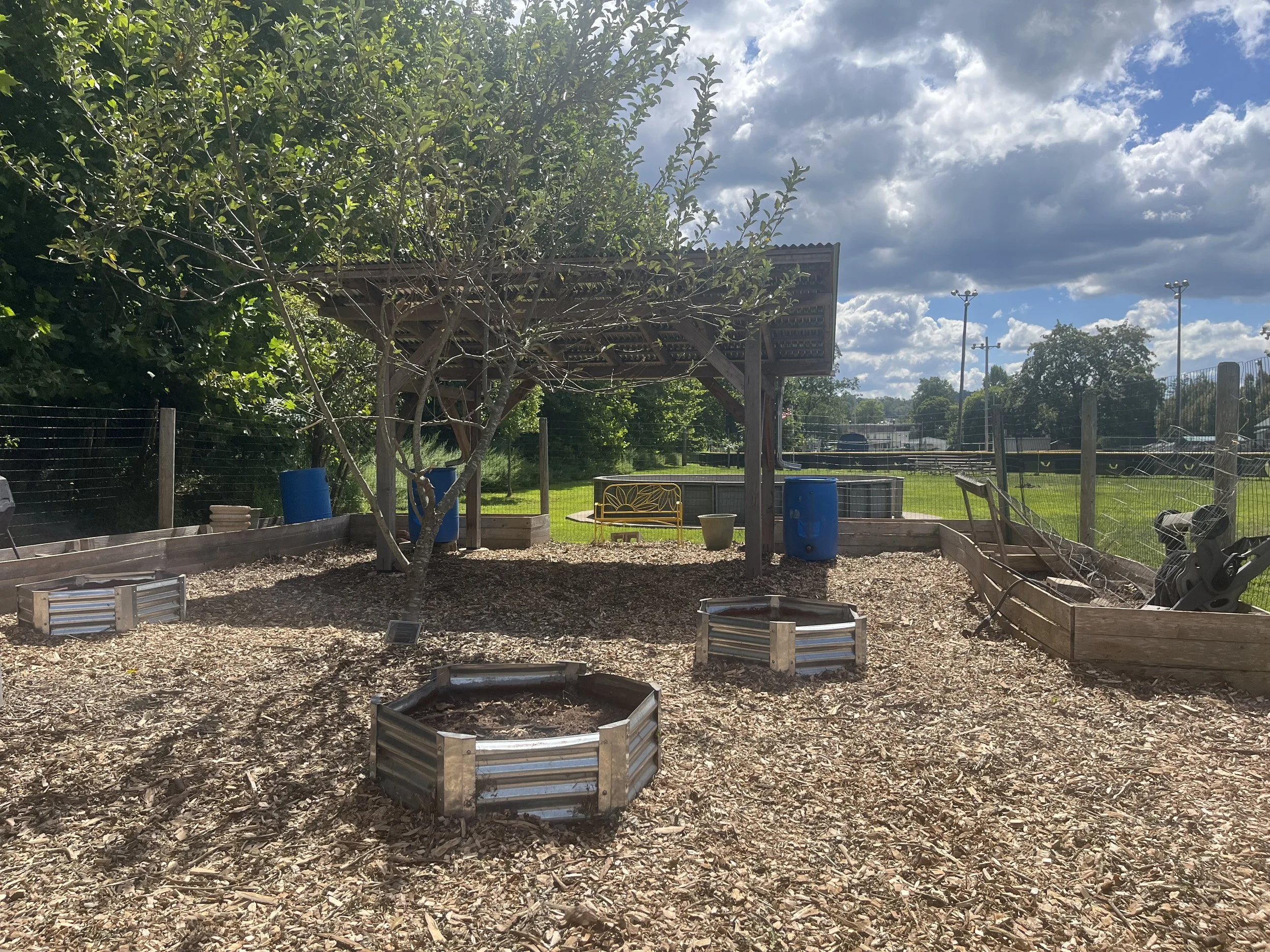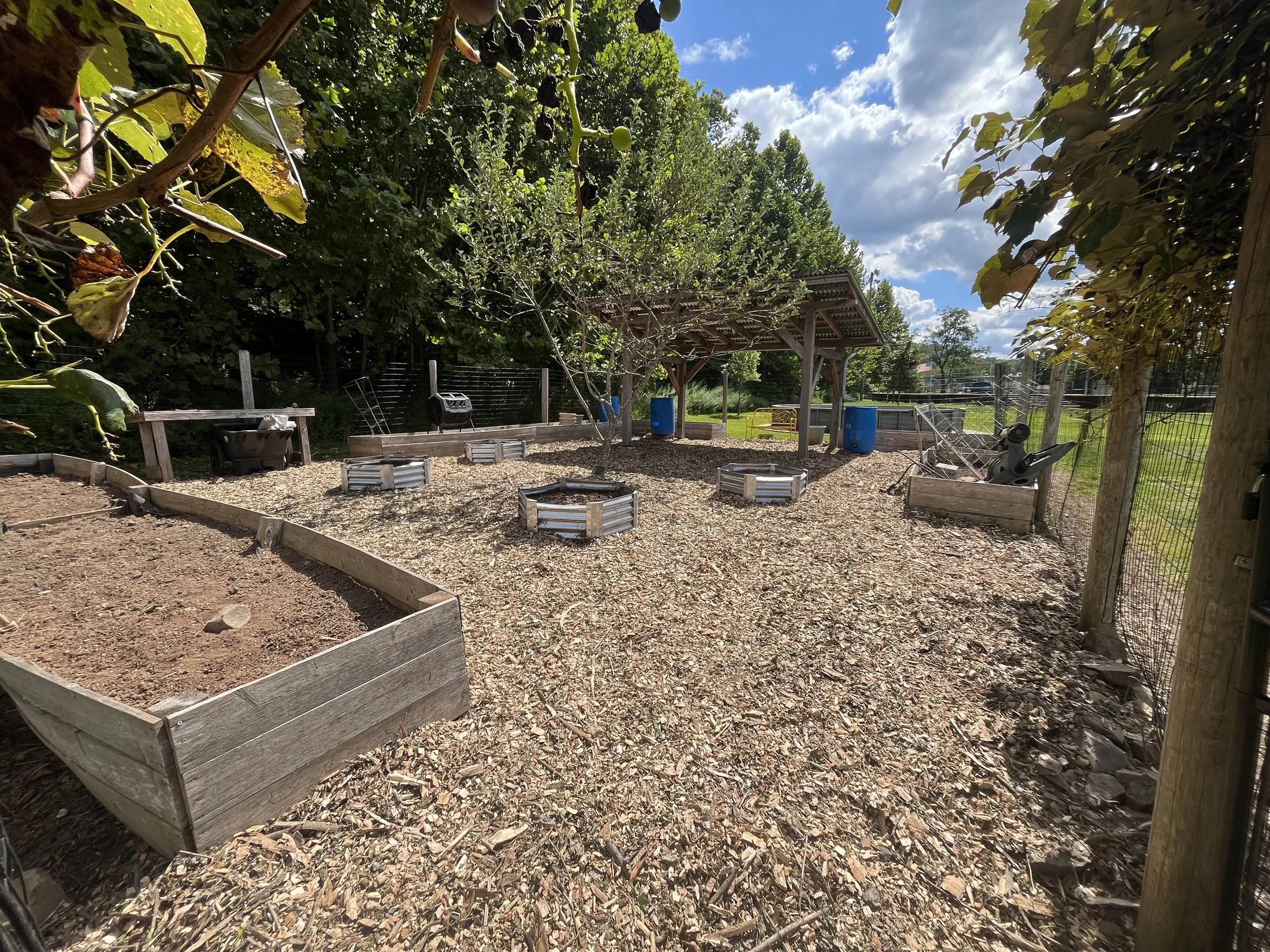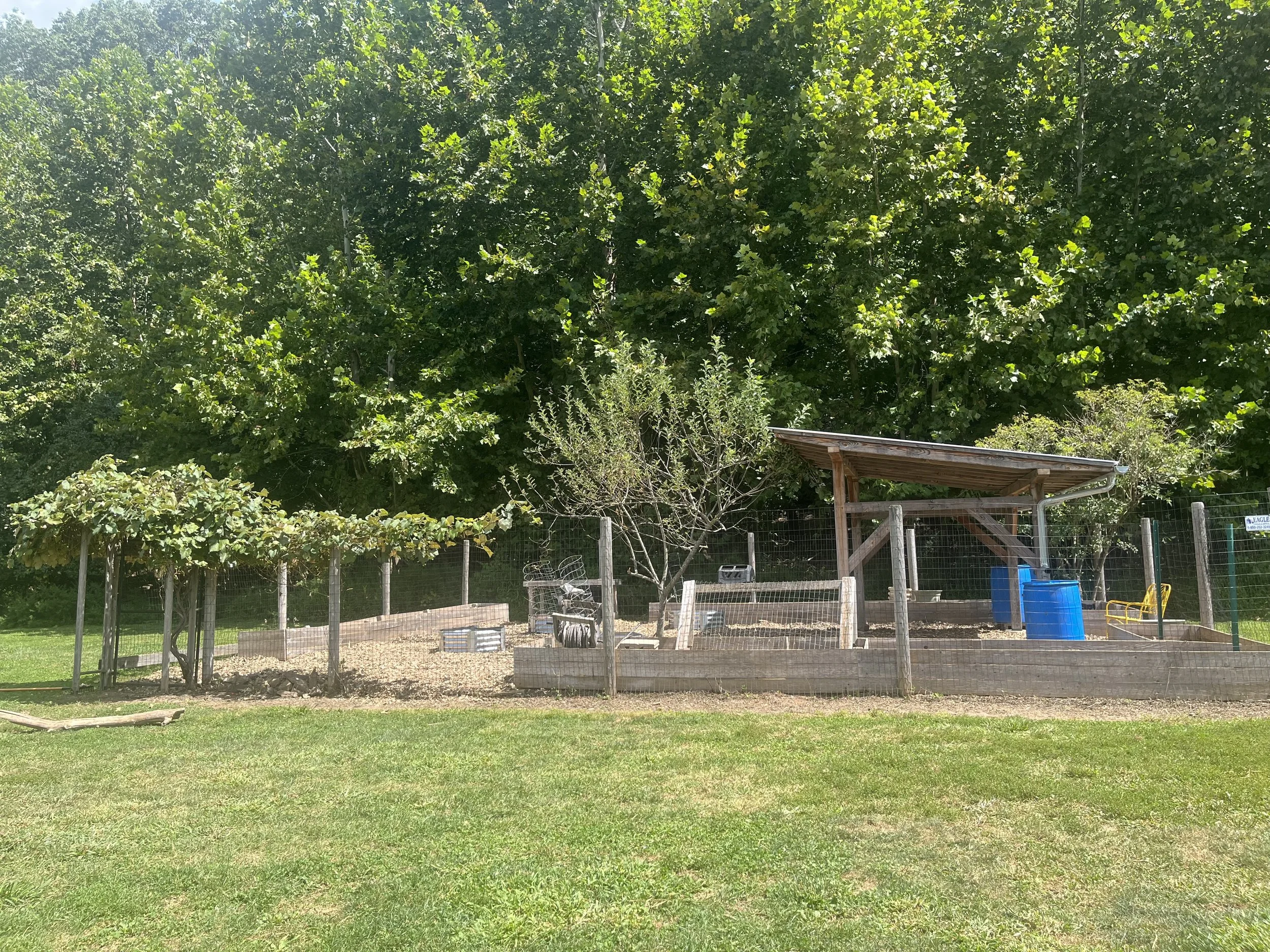
School Garden Project
Restoring the South Hunterdon School Garden: A Community Effort for Our Children
In Mid August, the South Hunterdon Regional School District garden was nearly inaccessible. The gate was jammed shut by weeds, the raised beds were buried, and vines climbed up the fence. Some in town wondered aloud whether the space should be dismantled or relocated.
But to me, the thought of losing this garden was heartbreaking. As a school psychologist and Ph.D. candidate in educational psychology researching the benefits of nature for children’s development, I know just how powerful spaces like this can be. School gardens are more than patches of soil; they are living classrooms. They have the power to improve children’s physical and mental health, strengthen social and emotional skills, boost academic achievement, and build lifelong connections to the natural world. To remove the garden, or let it sit neglected, would be a lost opportunity for our children and our Lambertville community.
A Time of Renewals
So, I rolled up my sleeves. Over the course of three weeks, I cleared weeds, hauled brush, put down mulch, and uncovered the grapes and berries hidden beneath the tangle. To my surprise and joy, children began to wander over. They asked if they could help, slipped on the kid-sized gloves, and eagerly pulled weeds. They picked grapes and raspberries, tasted them, and shared with one another. They even suggested rules for the garden: no destroying plants, be kind to the wildlife, be kind to others, no littering, and keep it clean.
Cheerleaders paused mid-practice to try the grapes, and one sixth-grade girl remarked, “This garden looked terrible earlier in the week. Thank you for cleaning this up for us.”
Community members also stopped by to talk about the garden, noting the effort it took to restore it. One man shared that he had helped build the original garden and rain roof about six years ago. He explained that the garden was used for a year or two and then left untended. People expressed real excitement about bringing it back to life. Parents I spoke with were delighted to know their children would now be able to use the garden as both a backdrop and a tool for learning.
In those moments, I saw what this garden is meant to be—a place where children feel ownership, curiosity, and joy, and a place for community connection.
I spoke with Jess H., the president of the PTA, and we decided to collaborate to restore the garden and to maintain it throughout the school year, as it takes true collaboration to ensure sustainability of the school garden.
Why the Garden Matters
Although restoring the garden took significant time and effort, motivation was found in the research I’ve done on how school gardens support children’s development and learning.
Research shows that school gardens:
🍎 Promote Healthier Choices – Children gain nutrition knowledge and develop lifelong healthy habits.
📖 Strengthen Learning – Science, math, and reading skills improve through hands-on experiences.
💡 Spark Curiosity & Creativity – Gardens encourage problem-solving and innovation.
🤝 Build Collaboration – Students practice teamwork, respect, and responsibility.
😊 Support Well-Being – Improves focus, behavior, and social skills.
🌞 Encourage Active, Outdoor Time – Enhances physical health through movement and time in nature.
📊 Deliver the Greatest Benefits – Elementary students in year-long programs show the strongest growth.
💰 Provide High Value – Every $1 invested returns about $3 in academic and health outcomes.
School gardens are one of the most accessible and equitable ways to ensure that all children—not just those whose families have extra time or resources—experience these benefits.
What Families Can Do to Support School Gardens
🌱 Volunteer Time – Help with planting, weeding, or maintaining the garden during and after school.
🍎 Share Knowledge – Teach children and classes about cooking, nutrition, or gardening skills.
🧑🤝🧑 Join Events – Attend garden days, harvest festivals, or family nature walks to build community.
📚 Connect Learning at Home – Encourage kids to try new vegetables, cook with garden produce, or start a small home garden.
🛠️ Donate Resources – Provide kid-sized tools, gloves, seeds, or materials the garden needs, or make a donation to Lambertville Nature Explorers.
📣 Advocate – Support school policies that protect and expand outdoor learning opportunities.
💬 Partner with Teachers – Ask how garden lessons connect to classroom subjects and reinforce them at home.
Together, we can ensure this garden doesn’t just survive, but thrives! We can help to make it a place where children learn, explore, and grow for years to come.
